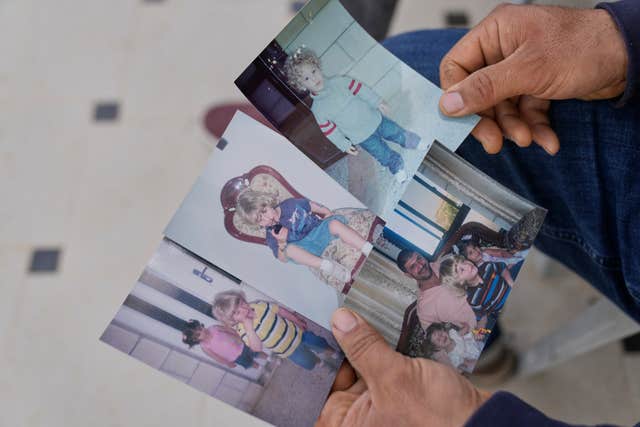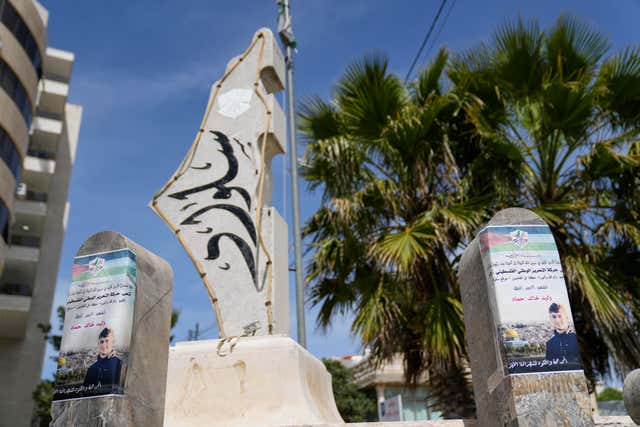West Bank teenager becomes first Palestinian under 18 to die in Israeli prison
Three prisoners held alongside the boy have claimed he was suffering from dysentery, which is widespread amongst the young Palestinian inmates.

A 17-year-old boy from the West Bank who was held in an Israeli prison for six months without being charged died after collapsing in unclear circumstances, becoming the first Palestinian under 18 to die in Israeli detention, officials said.
Walid Ahmad was a healthy high school student before his arrest in September for allegedly throwing stones at soldiers, his family said.
Rights groups have documented widespread abuse in Israeli detention facilities holding thousands of Palestinians who were rounded up after Hamas’s October 7 2023 attack that ignited the war in the Gaza Strip.
Prison authorities deny any systematic abuse and say they investigate accusations of wrongdoing by prison staff.
But the Israeli ministry overseeing prisons acknowledges conditions inside detention facilities have been reduced to the minimum level allowed under Israeli law.

Israel’s prison service did not respond to questions about the cause of death.
It said only that a 17-year-old from the West Bank had died in Megiddo Prison, a facility that has previously been accused of abusing Palestinian inmates, “with his medical condition being kept confidential”.
It said it investigates all deaths in detention.
Khalid Ahmad, Walid’s father, said his son was a lively teenager who enjoyed playing football before he was taken from his home in the occupied West Bank during a pre-dawn arrest raid.
Six months later, after several brief court appearances during which no trial date was set, Walid collapsed on March 23 in a prison yard and struck his head, dying soon after, Palestinians officials said, citing witness accounts from other prisoners.
The family believes Walid contracted amoebic dysentery from the poor conditions in the prison, an infection that causes diarrhoea, vomiting and dizziness — and can be fatal if left untreated.
Israel has rounded up thousands of Palestinians in the Gaza Strip and the West Bank, saying it suspects them of militancy.
Many have been held for months without charge or trial in what is known as administrative detention, which Israel justifies as a necessary security measure.
Others are arrested on suspicion of aggression towards soldiers but have their trials continuously delayed as the military and Israel’s security services gather evidence.
Walid sat through at least four court appearances over videoconference, his father said, but each time the judge delayed, eventually setting an April 21 hearing date.
Each session was about three minutes, Mr Ahmad added.
In a February session, four months after Walid was detained, his father noticed that his son appeared to be in poor health.
“His body was weakened due to malnutrition in the prisons in general,” Mr Ahmad said, adding his son had told him he had scabies — a contagious skin rash caused by mites that causes intense itching – but had been cured.
“Don’t worry about me,” his father remembers him saying.
On learning his son had died, Mr Ahmad said: “We felt the same way as all the parents of the prisoners and all the families and mothers of the prisoners.
“We can only say ’Indeed, we belong to Allah, and indeed to him we shall return’.”

Firas al-Jabrini, Walid’s lawyer, said Israeli authorities denied his requests to visit his client in prison but added three prisoners held alongside him had said the teenager was suffering from severe diarrhoea, vomiting, headaches and dizziness.
Megiddo, in northern Israel, “is the harshest prison for minors,” Mr al-Jabrini said. He said he was told that rooms designed for six prisoners often held 16, with some sleeping on the floor. Many complained of scabies and eczema.
Thaer Shriteh, spokesperson for the Palestinian Authority’s detainee commission, said Walid collapsed and hit his head on a metal rod, losing consciousness.
“The prison administration did not respond to the prisoners’ requests for urgent care to save his life,” he said, citing witnesses who spoke to the commission.
The lawyer and the Palestinian official both said a post-mortem examination is needed to determine the cause of death. Israel has agreed to perform one, but a date has not been set.
Walid is the 63rd Palestinian prisoner from the West Bank or Gaza to die in Israeli custody since the start of the war, according to the Western-backed Palestinian Authority, which administers parts of the West Bank.
Palestinian prisoner rights groups say that is about one-fifth of the roughly 300 Palestinians who have died in Israeli custody since the 1967 Mideast war, when Israel captured the West Bank, Gaza and east Jerusalem.





